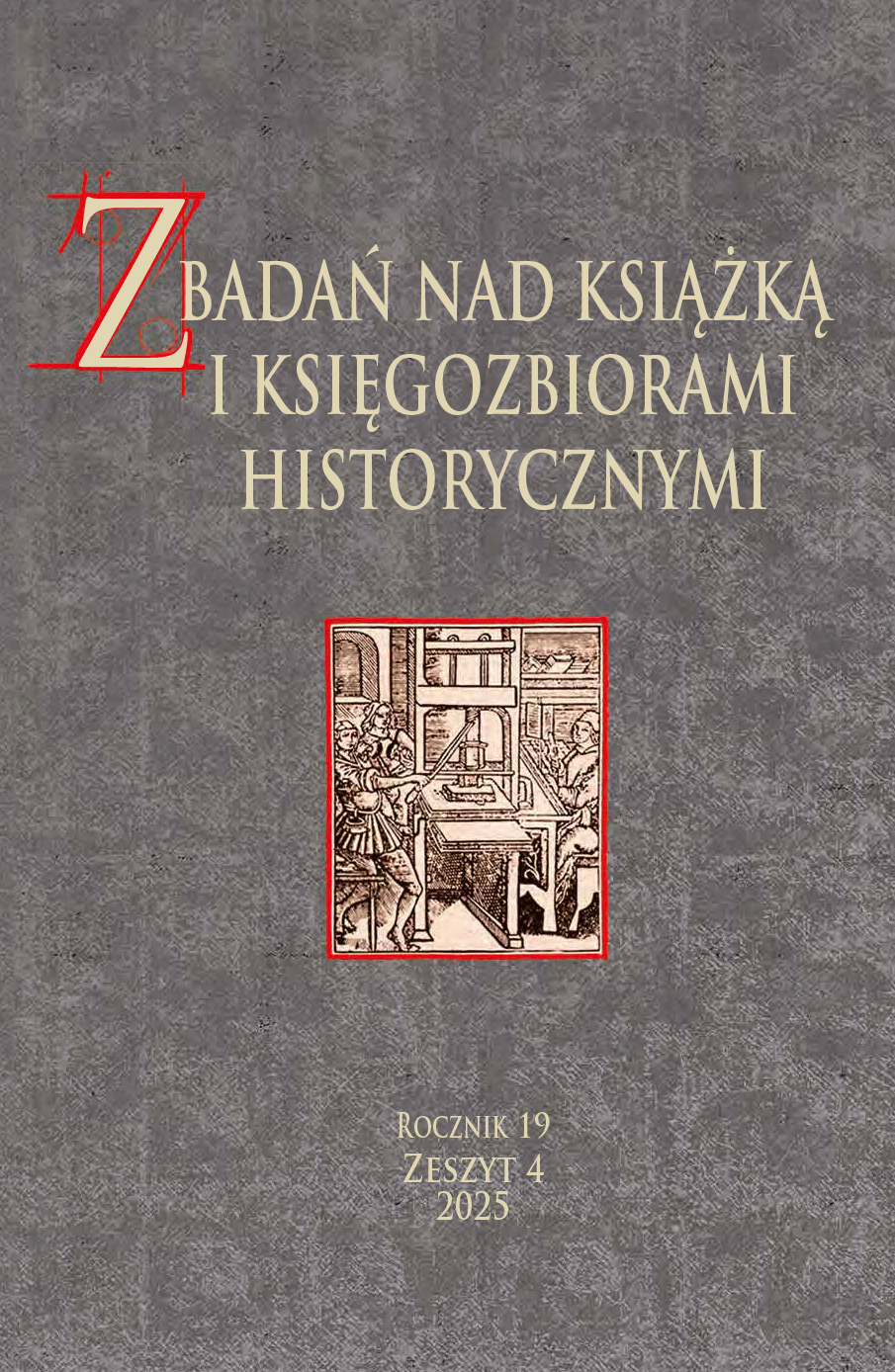“Books, shoeshine, soap and jam…” Provision of Books for the Rural Areas of Poland in the Nineteen-Fifties in the Light of the Archival Materials of the Central Bureau of Publications, Typographical Industry and Bookselling
DOI:
https://doi.org/10.33077/uw.25448730.zbkh.2012.290Keywords:
Stalinism, provision of books, countryside, readership, Poland.Abstract
During the nineteen-fifties, in the Polish countryside, books were circulated chiefly by the network of the „Peasant Cooperative” shops, by volunteers, and by postmen, who offered to the customers the books of the company „Ruch”. The books available in the „Peasant Cooperative” shops were provided by the company „Dom Książki”, obtained through the intermediary structures of the Central Offices of the Farmers Cooperatives. Starting with 1951 through the next five years, production and distribution of books in Poland was supervised by the Central Bureau of Publications, Typographical Industry and Bookselling. The archives of this institution, nowadays kept at the Central Archives of Modern Records in Warsaw, demonstrate that selling books to the peasants encountered various problems. Initially, the idea of selling books in village shops proved a disappointment. These shops had neither the necessary room nor the trained personnel to vend printed matter. The shopkeepers often wouldn’t even bother to unpack the books, but sent them back immediately. In 1951, the overall bookselling plan was realized only at the level of 32%, rising a year later to 46%. To reach that level the village shopkeepers combined selling books with deficit wares, or gave books instead of the change. The number and destination of newly published books always went in accord with a central plan, which was worked out in administrative capitals of provinces. These plans were based on a mechanical division of the numbers of books appointed to locations, regardless of actual needs. Training the shopkeepers in vending books also proved ineffective, because of the high level of personnel rotation in shops. At the beginning of 1953, there was an attempt at establishing a system of distribution, but the undertaken activities brought little authentic change. The second attempt, launched towards the end of 1954, brought more effect. In result, in 1955, even small towns could often boast three bookshops (or so called selling „points”), run by the „Dom Książki” company, the „Ruch” company, and the „Peasant Cooperative” vendors. At the same time, within the Propaganda and Campaigning Division of the Central Committee of the Communist party in Warsaw there prevailed the conviction that failure of the readership programme among the peasantry was mainly due to lack of adequate ideological and propaganda literature.






